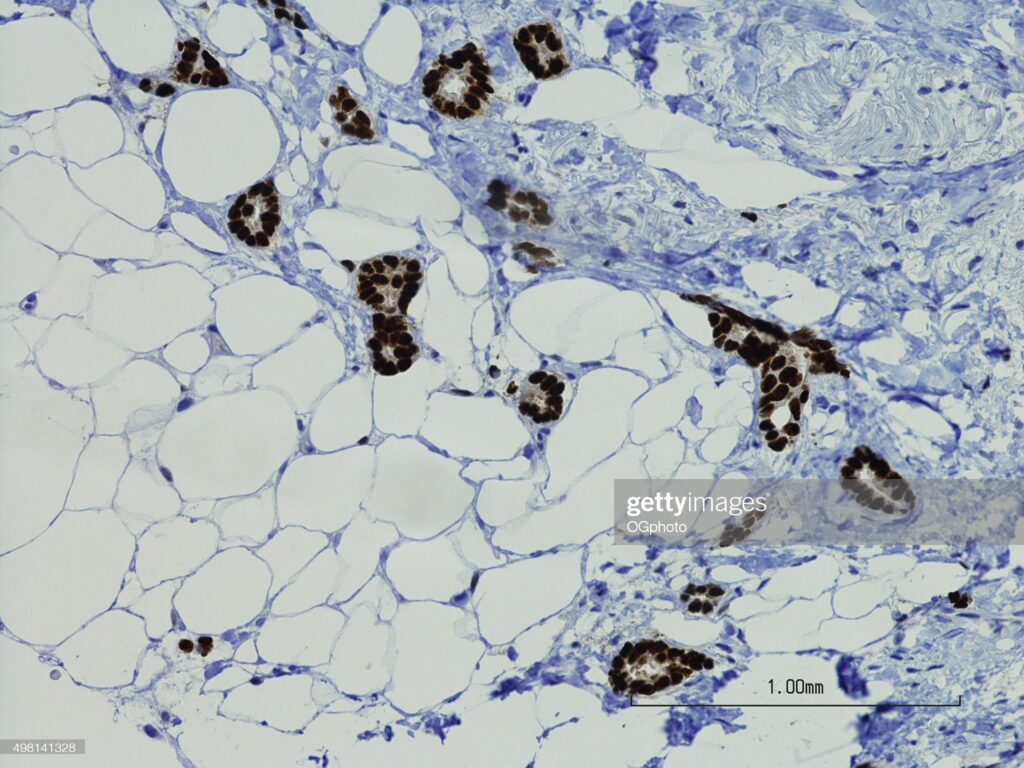The current standard of care for breast cancer patients with severe menopausal symptoms calls for avoiding menopausal hormone therapy (MHT) based on concern about the possibility of estrogen stimulating tumor growth and cancer recurrence. But a comprehensive data review of evidence on the use of MHT published in the journal Menopause, suggests this standard may be too stringent and that patients should instead be counseled on whether these treatments could improve their quality of life, despite the risk.
“While recommending against the use of MHT after breast cancer is justified to reduce the risk of breast cancer relapse and death, it should be acknowledged that some patients may consider maintaining quality of life to be of equal or greater importance,” the researchers wrote.
For this research, the authors examined clinical trials, observational data, and consensus of medical experts as they looked to address what is a lingering question in the care of breast cancer patients: can MHT be safely administered to manage debilitating menopause symptoms?
“One of the most successful treatments for breast cancer is to starve it of estrogen,” said study leader Jayant Vaidya, PhD, a professor of surgery and oncology at the University College London, who specializes in breast cancer. “However, many breast cancer survivors experience menopausal symptoms that negatively impact their quality of life.”
The review is somewhat counter to current treatment guidelines, such as those from NICE, which currently restrict MHT use to “exceptional circumstances” due to concerns that estrogen can stimulate recurrence in estrogen receptor-positive (ER+) breast cancers, which make up 70–80% of cases. Instead, the expert panel recommends shifting from a blanket avoidance of HRT to a patient-centered, shared decision-making approach.
“The panel agreed that some women may choose to take MHT (off-label use) and accept an increased risk of relapse in exchange for relief from menopausal symptoms and an improved quality of life, and that preferences may vary according to individual circumstances and the absolute risk of relapse. All respondents agreed or strongly agreed with statements supporting shared decision making and individualized menopause care,” the authors noted.
To develop their recommendations, a 25-member panel including menopause specialists, oncologists, surgeons, radiologists, and patient representatives used a modified Delphi method to review and synthesize existing data. In total, the panel produced 34 consensus statements, including key guidance on the use of systemic and vaginal forms of HRT.
Systemic HRT, which acts throughout the body, was found to increase relapse risk in women with ER+ breast cancer, especially within five to 10 years of diagnosis. However, the panel noted that the increased risk is mostly from local recurrence or second primary cancers, which are often easily treated. In moderate-risk cases, systemic HRT raised the relapse rate from 14% to 20% over seven years. In low-risk patients, the relapse rate increased from 5% to 7.2%. “Despite use of HRT, 92.8% of women with low-risk disease will not experience a relapse,” the researchers wrote.
A significant finding of the reviewers regarded the increased risk of distant relapse, metastasis of cancer away from the original cancer site, which is typically an incurable form of the disease. The reviewers said that even the increase in this risk was very small, rising from 5.8% to 6.3% in moderate-risk women and from 2.1% to 2.3% in low-risk women.
Vaginal estrogen, used locally for genitourinary symptoms, was deemed unlikely to increase recurrence risk due to minimal systemic absorption. The panel supported its use to treat symptoms such as vaginal dryness and painful sex in breast cancer survivors.
Mush of the current consensus on avoiding HRT was based on previous clinical trials, including HABITS and the Stockholm Study, which showed increased relapse risks with HRT. However, the new review re-examined those data and contextualized the risks in light of modern treatments and diagnostic improvements.
The researchers said further study is needed and that enrolling patients considering HRT into clinical trials would better quantify risks and benefits. In this vein, they proposed the launch of a trial called MENO-ABC to track outcomes including relapse, mortality, and quality of life. Until more robust trial data are available, the authors said that clinicians and patients should work within the existing consensus framework to guide informed, individualized decisions.
First author Sarah Glynne, a GP and menopause specialist at Portland Hospital, London, said, “As a panel of experts, the consensus was that we should move away from a de facto ban of HRT after breast cancer diagnosis towards a more nuanced, evidence-based discussion that respects each woman’s circumstances, values, and preferences.”

